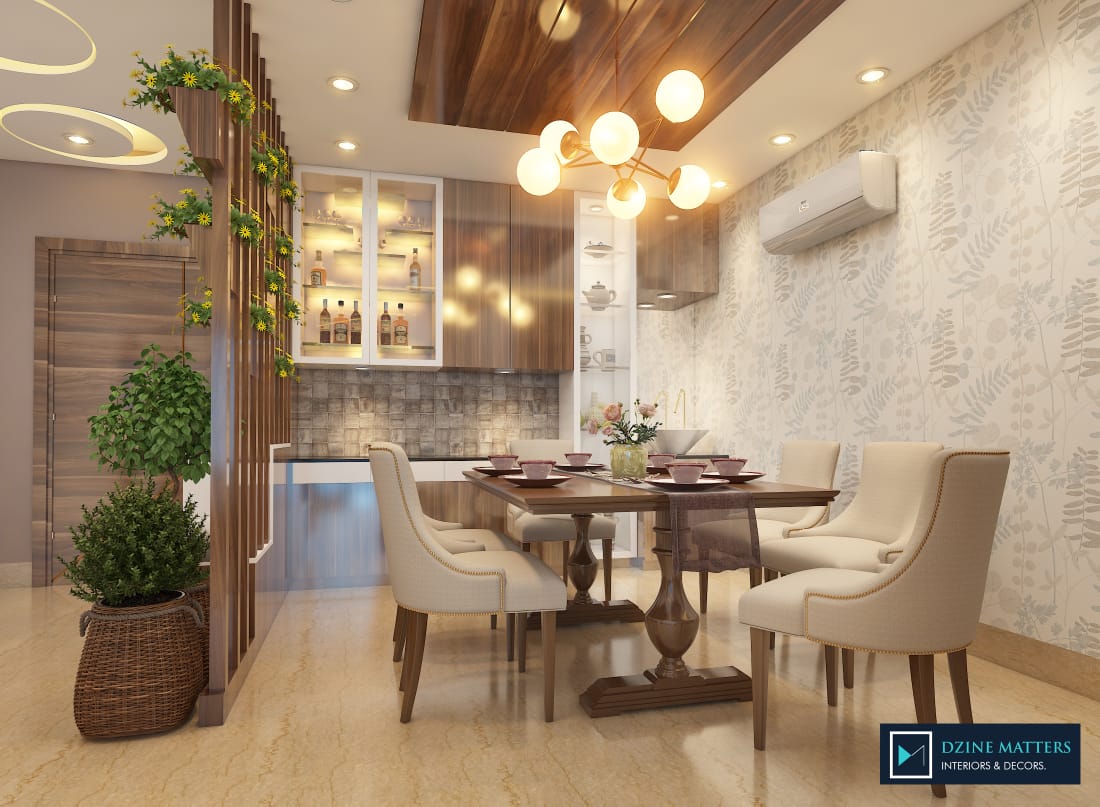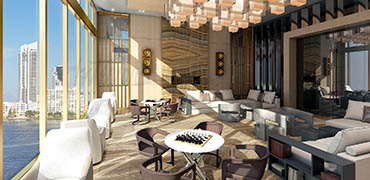D'zine Matters is a premier interior design firm based in Kolkata, offering innovative and personalized design solutions for your dream home. We specialize in creating unique, functional spaces tailored to your style and budget, ensuring every project reflects your vision. Our team works closely with you, right from your home or office, to visualize designs that resonate with your taste while optimizing space and resources. Whether it’s a residential project or commercial space, we're here to guide you every step of the way.


We design Wardrobes, Kitchen Cabinets based...

We are in a best position to understand your concerns....

Vaastu considered the interplay of various forces of....

Hospitality design refers to the specialized field of interior design that focuses on creating functional and aesthetically pleasing spaces for businesses in the hospitality industry.

Garden, landscaping, and terrace designs are focused on creating outdoor spaces that are aesthetically pleasing, functional, and harmonious with their surroundings.








Interior designing involves a creative and systematic process to enhance the interior spaces of a building and make them visually appealing, functional, and comfortable. While the specific steps can vary depending on the project's complexity and the designer's approach, here are four fundamental steps in the interior designing process:

The first step is to have a thorough discussion with the client to understand their needs, preferences, and lifestyle. This involves asking questions about their vision for the space, the purpose of each room, any specific design styles they like, color preferences, budget constraints, and any other relevant information. Building a strong understanding of the client's requirements is crucial to designing a space that aligns with their expectations.

After gathering all the necessary information, the interior designer proceeds to develop a concept for the space. This step involves creating a vision and design direction based on the client's requirements and preferences. It may include creating mood boards, sketches, and 3D visualizations to convey the proposed design ideas. The concept should encompass the overall theme, color scheme, furniture style, layout, and any specific design elements unique to the project.

Once the client approves the design concept, the next step is to create detailed plans and blueprints. This phase involves creating floor plans, elevation drawings, and technical drawings that specify the placement of furniture, lighting, electrical outlets, and any other design elements. The interior designer also collaborates with contractors, architects, and other professionals to ensure the smooth implementation of the design. Additionally, materials, finishes, and furnishings are selected and ordered during this stage.

This is the final step where the design concept comes to life. The interior designer oversees the actual construction or renovation, coordinating with contractors and tradespeople to ensure that the design is executed according to the plans. After the construction is complete, the space is furnished and styled with decorative elements such as artwork, rugs, curtains, and accessories. The designer pays attention to every detail to create a cohesive and visually pleasing interior.
It's essential to note that interior designing is a dynamic and iterative process. Designers often need to be flexible and open to making adjustments based on client feedback, budget constraints, and unforeseen challenges during the implementation phase. Good communication and collaboration with the client and other professionals involved in the project are key to a successful interior design process.